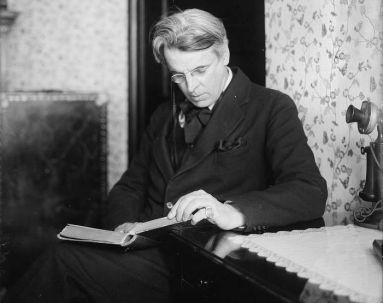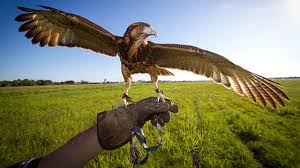Category Archives: peace
The ceremony of innocence
Is drowned?
I’ve become fascinated with Yeats’ 1918 poem (published in 1921), “The Second Coming“:
Turning and turning in the widening gyre
The falcon cannot hear the falconer;
Things fall apart; the centre cannot hold;
Mere anarchy is loosed upon the world,
The blood-dimmed tide is loosed, and everywhere
The ceremony of innocence is drowned.
The best lack all conviction, while the worst
Are full of passionate intensity.
OK. Yeats saw “gyre” as the spiral of humanity into chaos and instability.

W.B. Yeats. No slouch.
The “centre cannot hold” refers to the collapse of centralized order. This is the most famous line of the poem: the poem’s thesis in a nutshell.
Yeats’ poem goes on to describe: “And what rough beast, its hour come round at last, / Slouches towards Bethlehem to be born?”
What is the beast?
…Yeats’s beast, it must be said, isn’t deteriorating or dying in its slouching, as the many references to the phrase would have you believe; rather, it slouches in steady, dedicated progress toward a goal. It’s actually a terrifying sight: the poem’s narrator intuits that the beast is coming to wreak some untold havoc. (At least one blog got this subtlety right in a headline about the 2012 election cycle: “Romney slouching toward GOP nomination.”)
And in certain circles: An interesting fact: falconers wear heavy gloves to keep the birds from scratching them with their claws.

The bird is not supposed to keep flying in circles forever. (Source: RLMagazine)
Here’s the context: Yeats, a poet, wrote the poem in the wake of The Great War—now known as World War I.
Then there was World War II.
What did Yeats mean by the “ceremony of innocence“:
With words like “tide,” “loosed,” and “drowned,” the poem gives the sensation of water rushing around us. It’s like Noah’s flood all over again, except there’s no orderly line of animals headed two-by-two into a boat. What’s Yeats referring to here? Is this a future prophecy, the poet’s dream, or maybe a metaphor for Europe at war? There’s really no way to be sure – Yeats doesn’t seem to want us to know too much.
Things fall apart; the centre cannot hold:
In other words, the world’s trajectory along the gyre of science, democracy, and heterogeneity is now coming apart, like the frantically widening flight-path of the falcon that has lost contact with the falconer; the next age will take its character not from the gyre of science, democracy, and speed, but from the contrary inner gyre—which, presumably, opposes mysticism, primal power, and slowness to the science and democracy of the outer gyre. The “rough beast” slouching toward Bethlehem is the symbol of this new age; the speaker’s vision of the rising sphinx is his vision of the character of the new world.
Since The Great War became World War I, what poets are there who have captured similar insights?
[The beast slouching toward Bethlehem]…seems quite silly as philosophy or prophecy (particularly in light of the fact that it has not come true as yet). But as poetry, and understood more broadly than as a simple reiteration of the mystic theory of A Vision, “The Second Coming” is a magnificent statement about the contrary forces at work in history, and about the conflict between the modern world and the ancient world. The poem may not have the thematic relevance of Yeats’s best work, and may not be a poem with which many people can personally identify; but the aesthetic experience of its passionate language is powerful enough to ensure its value and its importance in Yeats’s work as a whole.
I’d agree with that. I haven’t stopped thinking about the poem for a week or so. When something hangs on to you like that, it’s for a reason. I think it’s because of the line: “…the worst are full of passionate intensity.” A line like that makes an impression. A line like that could be ripped from today’s headlines.
The question is: Can World War III be avoided?
